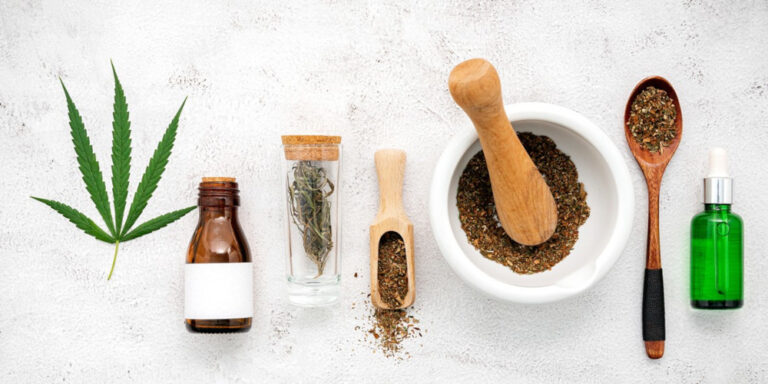When a loved one has a substance use disorder, the impact extends to everyone in the family. Addiction can alter family dynamics, disrupt communication, and erode trust. It can be overwhelming, leaving you unsure of where to turn or what steps to take next. However, family members play a crucial role in supporting a loved one through recovery. In time, it’s possible to heal from addiction and foster a healthier home environment for everyone involved.
The Role of Family in Addiction Recovery
Family members can be instrumental in their loved one’s recovery journey. Working together to encourage your loved one to seek help and maintaining a healthy support system can prevent relapse. Here’s how you can help a family member with addiction:
Educate Yourself
Understanding Addiction
Addiction is a complex condition that affects the brain and behavior, leading to an inability to stop using substances despite harmful consequences. It’s crucial to recognize that addiction is a chronic disease, similar to diabetes or heart disease, which requires ongoing management and treatment. By educating yourself about addiction, you can better understand the physical, emotional, and psychological challenges your loved one is facing.
The Recovery Process
Recovery from addiction is a multi-faceted process that involves more than just abstaining from substances. It includes learning to manage cravings, dealing with underlying emotional or mental health issues, and developing new coping strategies. Recovery is often a long-term process that involves different stages, including detoxification, therapy, and aftercare support. Familiarizing yourself with these stages will help you provide relevant support at each step of the way.
Resources and Support
Take advantage of the numerous resources available to educate yourself. Books, online articles, support groups, and consultations with addiction professionals can provide valuable insights. Understanding the various treatment options, such as inpatient rehab, outpatient programs, and support groups like Alcoholics Anonymous (AA) or Narcotics Anonymous (NA), will enable you to support your loved one in making informed decisions about their recovery.
Ask What They Need
Respecting Their Autonomy
Recovery is a deeply personal journey, and it’s important to respect your loved one’s autonomy in deciding how they want you to be involved. They may need different types of support at various stages of their recovery, and it’s essential to be flexible and responsive to their changing needs.
Open Communication
Have open and honest conversations with your loved one about their needs and expectations. Ask questions like, “How can I best support you right now?” or “What do you need from me during this process?” This approach fosters a collaborative environment where your loved one feels empowered and understood.
Avoiding Assumptions
It’s easy to make assumptions about what your loved one needs based on your own perceptions. However, assuming can lead to misunderstandings and potentially hinder their recovery. By directly asking them how you can help, you ensure that your support aligns with their actual needs and preferences.
Offer Encouragement
Emotional Support
Providing consistent emotional support is crucial in your loved one’s recovery. Let them know that you believe in their ability to overcome addiction and that you’re there for them through the highs and lows. Simple affirmations like, “I’m proud of you for taking this step,” or “You’re doing a great job,” can boost their morale and motivation.
Celebrating Milestones
Acknowledge and celebrate their achievements, no matter how small they may seem. Celebrating milestones, such as a month of sobriety or completing a phase of their treatment, can provide a sense of accomplishment and encourage them to keep moving forward.
Encouraging Resilience
Recovery involves setbacks and challenges. Encourage your loved one to view these obstacles as part of the journey rather than failures. Remind them that it’s normal to face difficulties and that each challenge they overcome makes them stronger.
Promote Accountability
Setting Healthy Boundaries
While offering support, it’s essential to set healthy boundaries to avoid enabling behaviors. Enabling can include making excuses for their behavior, covering up for them, or providing financial support that facilitates their substance use. Clear boundaries help your loved one understand the consequences of their actions and encourage responsible behavior.
Supporting Responsibility
Encourage your loved one to take responsibility for their recovery. This can involve adhering to their treatment plan, attending therapy sessions, and actively participating in support groups. By promoting accountability, you help them develop the discipline and self-reliance needed for long-term recovery.
Being There for Conversations
Let your loved one know that you are available for open and honest conversations about their progress, challenges, and feelings. Regular check-ins can provide them with a safe space to express themselves and seek advice or support when needed.
The Role of Friends in Addiction Recovery
Friendship is vital in addiction recovery. A strong support system can significantly impact a person’s recovery and overall well-being. Here’s how friends can support someone in recovery:
- Provide Counsel
Friendships offer a sense of belonging, boost happiness, and encourage self-confidence. If your friend is struggling with addiction, provide valuable support and counsel as they seek treatment. - Help Them Avoid Triggers
Maintain a supportive friendship after treatment by understanding and helping your friend avoid addiction triggers to prevent relapse. - Trust the Process
Recognize that recovery is ongoing and requires patience. Your emotional support can be incredibly valuable throughout your friend’s treatment. - Do Sober Activities
Engage in sober activities together to strengthen your bond, prevent loneliness, and encourage healing. Activities like fitness classes or hiking trips can make your friend feel valued and supported.
How to Support a Loved One in Treatment
As your loved one begins their recovery, there are several ways you can support them:
- Give Them Space
Allow your loved one the space they need to focus on their recovery. They will be learning to live without substances while addressing underlying issues, which requires time and patience. - Trust the Professionals
It can be hard to see a loved one struggle, but it’s important to trust the professionals to handle the situation and create an effective treatment plan. - Practice Self-Care
Remember to take care of yourself during this time. Spend time with other friends and family, exercise, get proper sleep, and eat nutritious meals. Consider attending therapy sessions to address any issues that may have arisen during your loved one’s addiction. - Try Family Therapy
Participate in family counseling if needed. Mental health professionals can help your family cope with difficult feelings and provide tools for healthier communication and a supportive home environment. - Set Boundaries
Be honest about your need for time and space to focus on your own needs. Avoid enabling behaviors and set boundaries to reduce stress and depression, allowing you to offer better support. - Remain Optimistic
Stay positive for your loved one while recognizing that you cannot control the outcome of their treatment. Remain hopeful but realistic throughout the recovery process and take things day by day.
The Importance of Support Groups for Friends and Family Members
Support groups can be a vital resource as your loved one seeks treatment. Here’s how these meetings can help:
Heal and Move Forward
Addiction in a family can lead to feelings of guilt and blame. Support groups provide a space to release these feelings and focus on healing.
Address Communication Issues
Support groups can help address unhealthy family dynamics and communication issues, fostering a healthier environment.
Provide Understanding and Support
Having a loved one with addiction can feel isolating. Support groups offer a community of people who have experienced similar emotions and can validate your feelings.
Gain Insight
Led by counselors and mental health professionals, support groups allow you to ask difficult questions and gain valuable insight into dealing with a loved one’s addiction.
Get Family Counseling Services and Support
Addiction impacts the friends and family members of those affected. Supporting a loved one while caring for yourself is crucial during this process. Seek out resources such as educational programming, family therapy, support groups, and various other services to help you and your family heal from the impact of addiction.










